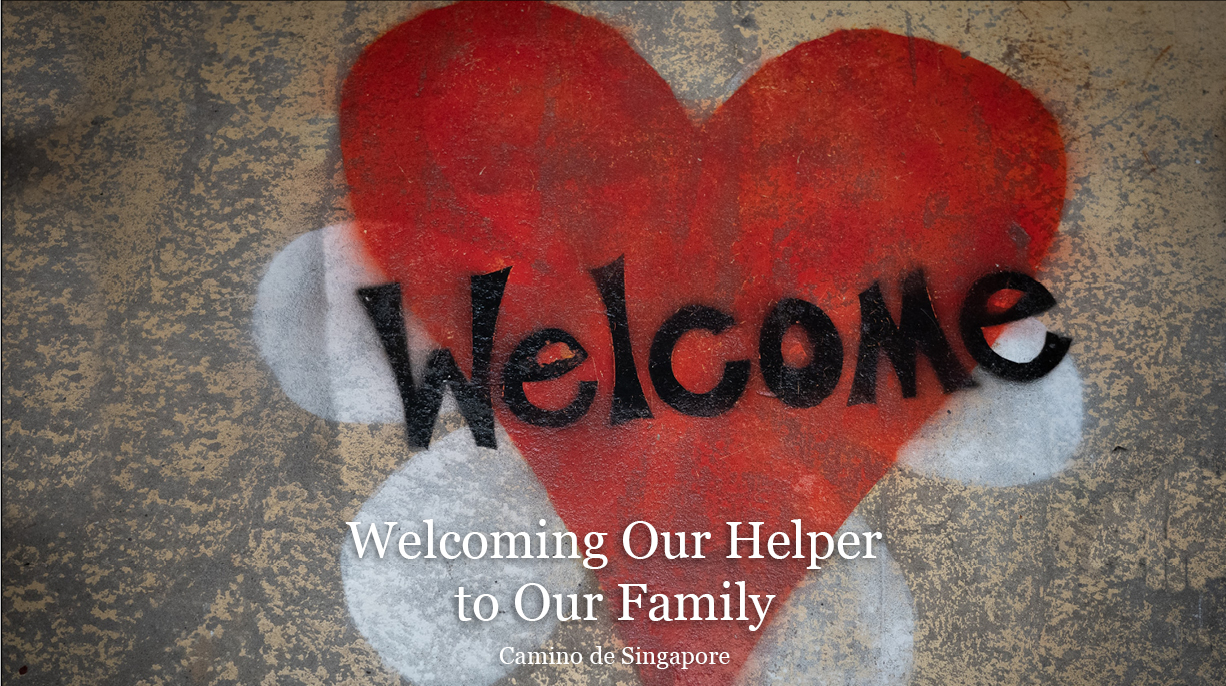No products in the cart.

Photo by https://unsplash.com/@jannerboy62
This month, we had a new addition to our family. No, it wasn’t a new baby, but it was the arrival of our migrant domestic worker, N.* It has been a very long journey for my wife and I, as well as N. We started the process to bring N. to Singapore in January 2021, but due to COVID-19 travel restrictions, the arrival was delayed for more than ten months. It has been a real test of patience, and my wife and I are so grateful that N. has finally joined our family.
Many families in Singapore engage migrant domestic workers to help in their homes. According to statistics by the Ministry of Manpower, there are more than 245,000 migrant domestic workers in Singapore as of June 2021. These migrant domestic workers help in household chores and play crucial roles as caregivers of children and the elderly. Sadly, a number of them are subject to abuse by employers, and in some cases, this has resulted in the death of the domestic worker.
In the light of these incidents, there has been more effort to protect migrant domestic workers. The Ministry of Manpower (MOM) will now require employment agencies to conduct at least one post-placement check within three months after a migrant domestic worker has joined the household. Since April 2021, MOM-appointed officers have been conducting visits to randomly selected homes to check on the working and living conditions of these workers.
While these initiatives are good and necessary, I cannot help but wonder if there is more that can be done. Health and safety requirements seem to me like a bare minimum standard. Shouldn’t we treat our domestic helpers as “human beings”, rather than just “human doings”? Can we instead encourage a culture of mutual respect and care? How can we, as Pope Francis wrote, no longer think in terms of “them” and “those” but only “us”?
I was very inspired, then, when I read the story of Ms. Mayasari and her employer, Ms. Vivian Sin. The pair recently won the top prize in the inaugural Exemplary Migrant Domestic Worker (MDW) and Employer award competition when Ms. Sin’s family provided a loan to Ms. Mayasari to buy land and build a home for Ms. Mayasari’s family back in Central Java.
Not all of us can do great things to improve the lives of migrant domestic workers. But all of us can, as St. Theresa of Calcutta famously said, “do small things with great love”. It could be as simple as caring for their psycho-emotional well-being by letting them know about SGOT Kita Kabayan, the free helpline for migrants set up by the Archdiocesan Commission for the Pastoral Care of Migrants & Itinerant People (ACMI).
For me, it is about continually regarding N. as a member of my family and encouraging my children to do so as well. Besides saying, “Mummy, Daddy, eat,” at mealtimes, we have also been encouraging my daughter to say, “kain” (which is Tagalog for “eat”) to N. as a sign of respect for her as an elder. What will you do to help us all move towards an ever wider “we”?
*name has been removed for privacy.
Related News
- ACMI’s new counselling helpline for migrants (Catholic News, 1 December 2021)
- Loan to build house in Indonesia helps pair win top prize in maid-employer award event (The Straits Times, 21 November 2021)
- Maid agencies must conduct post-placement checks within 3 months as part of new licence conditions (Channel NewsAsia, 28 October 2021)
- Woman admits killing maid; starved her to 24kg and assaulted her almost daily in ‘utterly inhumane’ case (Channel NewsAsia, 23 February 2021)
Kelvin Lim is a husband, a father of two, and a Social Work Associate at Caritas Singapore. His favourite book is “Life of the Beloved: Spiritual Living in a Secular World” by Henri J. M. Nouwen.
